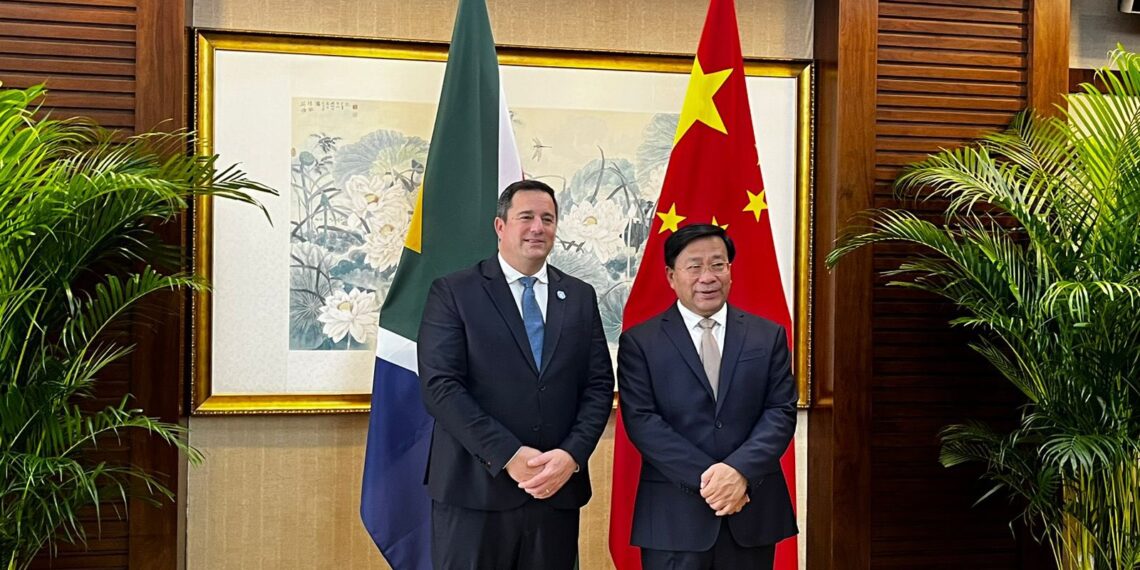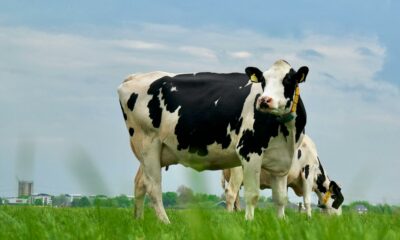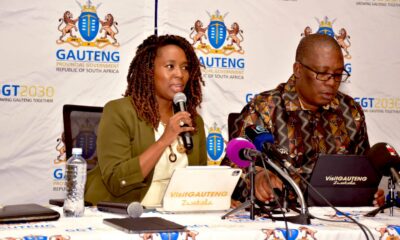News
Steenhuisen’s Pivot: Why South Africa is Leaning into China for Agriculture’s Future

A gala speech that signalled more than just dinner
At a glittering gala dinner in Johannesburg following the G20 Agriculture Working Group and Food Security Task Force meetings, Minister of Agriculture and Democratic Alliance leader John Steenhuisen struck a tone that few expected. Standing alongside his deputy, Nokuzola Capa, he openly acknowledged the importance of South Africa’s agricultural ties with China.
It was more than just polite diplomacy. Steenhuisen, whose party has historically opposed China’s “One China” stance and supported Taiwan, made a pragmatic call for partnership. His words suggested a shift from politics to economics, putting farmers and food security first.
Trade, trust, and the avocado factor
In his address, Steenhuisen reminded the room that agriculture is never a solo act. Farmers need markets, markets need trade, and trade depends on trust. He pointed to concrete examples of this principle at work.
In the past year, South Africa secured the right to export avocados to China, opening a fast-growing market to local farmers. Grapes are now finding their way to the Philippines and Vietnam, while citrus has made its debut in Vietnam. Each of these breakthroughs rests on South Africa’s rigorous production standards and biosecurity systems.
The citrus industry, one of the country’s export pillars, is expanding into new territories thanks to painstaking work on compliance and phytosanitary measures. These gains mean jobs on the ground and income for farming communities, not just diplomatic headlines.
China versus the West: a shifting balance
South Africa’s largest trade partner is already China, followed by the US, Germany, India, and Mozambique. Yet Steenhuisen’s statement comes at a time of strained ties with Washington. Allegations from the United States of “genocide” against white minority communities, which Pretoria strongly rejects, have created political and economic friction. On top of this, US tariffs of 30% have hit South African farmers and carmakers hard.
Against this backdrop, Steenhuisen’s warm words for Beijing seem less like a surprise and more like a necessity. Political analyst Henry Myataza noted that this pragmatic embrace of China could reshape South Africa’s foreign policy. He argued that national economic needs are beginning to override old ideological lines, especially as global food insecurity intensifies.
Friendship over formality
Steenhuisen also made a softer point. Beyond signed protocols and trade deals, he stressed the human side of international cooperation. Conversations at gala dinners, he said, matter as much as formal negotiations. Trust begins with friendship, and that is the soil where partnerships grow.
What this means for South Africa’s farmers
For the country’s agricultural sector, the message was clear. Aligning with China and East Asian markets offers opportunities that could shield farmers from Western trade headwinds. It also underscores South Africa’s role as a major player in global food systems.
While some may view the pivot as politically uncomfortable, for farmers on the ground it translates into something tangible: access to new buyers, secure incomes, and the chance to keep rural economies alive.
Also read: ANC policies have crushed South Africa’s economy, says Stanlib economist
Follow Joburg ETC on Facebook, Twitter, TikT
For more News in Johannesburg, visit joburgetc.com
Source: IOL
Featured Image: Food For Mzansi



























